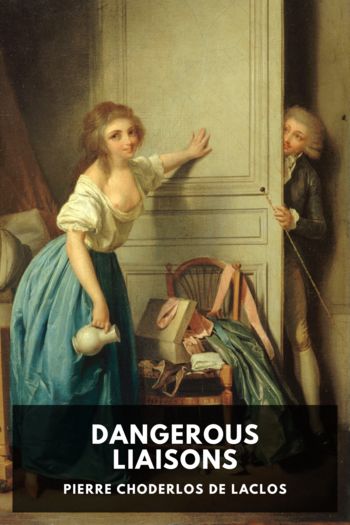The Disappearance of Stephanie Mailer: A gripping new thriller with a killer twist, Joël Dicker [general ebook reader .txt] 📗

- Author: Joël Dicker
Book online «The Disappearance of Stephanie Mailer: A gripping new thriller with a killer twist, Joël Dicker [general ebook reader .txt] 📗». Author Joël Dicker
“Come on now, Betsy,” he would say, “you can do better than that!”
“I like him, Daddy, that’s the main thing, isn’t it?”
“But can you imagine yourself married to him?”
“Daddy, I’m seventeen! I’m not thinking about that yet!”
The longer the relationship lasted, the more impatient my father’s campaign of obstruction. It was never head-on, but it was insidious. Whenever he could, through a detail he mentioned, an observation he slipped in, he would demolish, slowly but surely, the image I had of my boyfriend of the moment. I would invariably break up with him in the end, sure that the breakup was initiated by me—at least that’s what I wanted to think. And the worst of it was that, with each of these new relationships, my father would say: “You know, the last one was a really nice boy—it’s a pity you broke up—but this one, well, I really don’t know what you see in him.” And each time, I was taken in. But was I really taken in to the point that my father could cause my breakups without my knowing it? Or wasn’t it rather that I was the one who broke up, not for specific reasons, but simply because I couldn’t make up my mind to love a man my father disapproved of?
After graduating from Harvard and passing the New York bar exams, I became a lawyer in my father’s firm. That lasted a year, at the end of which I discovered that the law, sublime as it might be in principle, was a machine that took a lot of time and money to keep going, over-burdened with rules and procedures, from which, when it came down to it, even the victors did not emerge unscathed. I soon acquired the belief that justice might be better served if I could apply it earlier in the process and that working on the streets would have more impact. I enrolled in the N.Y.P.D.’s Police Academy, to the dismay of my parents, especially my father, who wasn’t pleased about my leaving his firm, but liked to believe that this was just a passing fancy, that I wasn’t giving up on the law and might drop out of my course halfway. I left the Academy a year later, valedictorian of my year, praised by all my instructors, and I became a detective in the 55th precinct.
I immediately loved the job, especially for all those tiny everyday victories that made me aware that, faced with the fury of life, a good police officer could actually fix things.
The place I had left free in my father’s firm was offered to an experienced lawyer, Mark, who was a few years older than me.
The first time I heard about Mark was at a family dinner. My father was in awe of him. “A brilliant, gifted, handsome man,” he said. “He has it all. He even plays tennis.” Then suddenly he said something else—words I heard uttered for the first time in my life: “I’m sure you’d like him. I’d like you to meet him.”
I was at a time in my life when I really did want to meet someone. But the encounters that I had never ended up being anything serious. After police academy, my relationships lasted no longer than a first dinner or a first excursion with third parties. Learning I was with the police—a detective, no less—people became fascinated and bombarded me with questions. I monopolized all the attention despite myself, captured all the light. And often the relationship ended with words along the lines of: “It’s hard to be with you, Betsy, people are only interested in you, I have the feeling I don’t exist. I think I need to be with someone who leaves me more space.”
I met the famous Mark one afternoon when I went to see my father in his office, and I was pleased to discover that he didn’t suffer from those complexes. With his natural charm, he was always the center of attention and had no problem engaging in conversation. He knew everything about everything, could do almost everything, and when he couldn’t, he admired those who could. I looked at him as I had never looked at anybody before, perhaps because my father looked at him with such obvious admiration. Mark was his blue-eyed boy, and they even started playing tennis together. My father went into ecstasies every time he talked to me about him.
Mark invited me for a coffee. The chemistry was immediate, perfect, a swift current of mad energy. After the third coffee, we went to bed together. Neither he nor I mentioned our meetups to my father, but one evening, when we were having dinner, he said to me:
“I’d really like things to become more serious between us . . .”
“But . . . ?” I said apprehensively.
“I know how much your father admires you, Betsy. He’s placed the bar very high. I don’t know if he likes me enough.”
When I reported these words to my father, he loved Mark even more, if that was possible. He called him to his office and opened a bottle of champagne.
When Mark told me about this, I couldn’t stop giggling for several minutes. I grabbed a glass, raised it in the air and, imitating my father’s deep voice and paternalistic gestures, declared, “To the man who’s fucking my daughter!”
That was the beginning of a passionate affair between Mark and me, which





Comments (0)